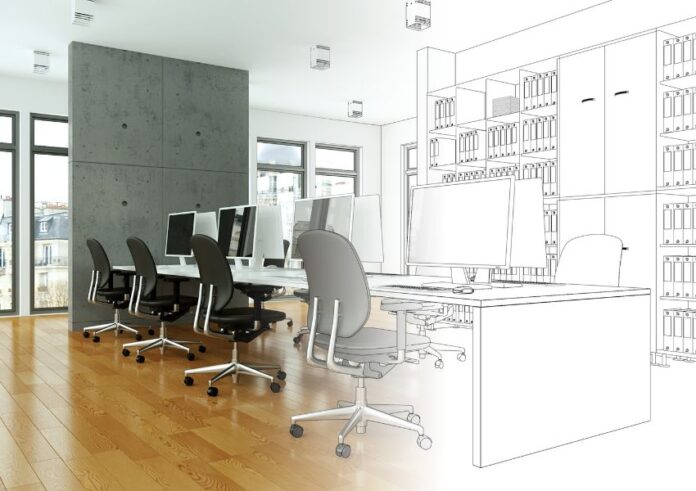More companies are now adopting a hybrid work setup, a move that is making the planning of optimal office ecology more complex, said leading diversified professional services and investment management firm Colliers.
“In adapting a hybrid work setup, businesses must reassess and reconfigure their offices not just to accommodate these changes, but at the same time maintain a sense of safety in the workplace and create an ideal work environment that will lead to better performance and employee engagement,” said Patricia Cruz, associate director of Office Services – Tenant Representation at Colliers.
According to Cruz, hybrid work is here to stay and the one challenge with this type of work setup is the fluidity of office needs because the number of employees coming to the office may fluctuate every day.
As a semblance of normalcy starts to return in the Philippines and around the world and more employers are already implementing or planning their employees’ return to the office, setting up the office ecology in such a way that it integrates collaboration and social interaction with protecting workers’ health and well-being is of utmost importance, said Cruz. “This, plus maintaining the workplace flexibility that employees now enjoy.”
In this regard, Colliers urges companies to evaluate the potential benefits of renovating their offices with the following considerations in mind.
1. Ventilation and air-filtration systems

Health experts have emphasized the importance of ventilation in minimizing the risk of transmitting Covid-19. “The absence of proper air circulation in an enclosed space allows coronavirus-containing aerosols to stay suspended in the air longer than they should and reduces the safety of the workplace,” said Cruz. This can be achieved by as simple as opening windows and using fans to exhaust room air to the outdoors, to using portable high-efficiency particulate air (HEPA) fan/filtration systems to enhance air cleaning.
2. Office ecology

How different teams should be positioned relative to each other and how you plan for them to interact are crucial when planning out your renovation, because your goal is to make the workplace more productive and efficient across different business functions and at the same time allow room for social distancing.
3. Current pain points of your office space

This might also be the time to assess the condition of your workstations, fit-out, electrical systems, and plumbing to see what improvements to office ecology need to be done, said Cruz. “Talk to your employees – they will be more than willing to provide feedback on how the office can help them work better.”
4. Transform every space to a workspace with collaboration areas

While important tasks are accomplished while employees are working remotely, many teams are struggling with generative work that brings about new ideas. To encourage this, consider huddle or informal meeting areas to inspire collaboration while maximizing the use of your office space, said Cruz.
5. Wellness areas

“Wellness” will be the buzzword when we all return to the office – and rightfully so. Businesses are encouraged to allocate spaces where employees can conduct activities that are beneficial to their well-being, such as quiet “inspiration” rooms where they can take a breather or even open spaces where groups can safely socialize or exercise together.
6. Renovation costs

Lastly, talk to a project consultant or a fit-out contractor to conduct a test fit-out to determine what needs improvement in your office space and what solutions can be implemented while staying within your budget. Renovating the office is just a small part of a larger shift that companies must be proactive towards changing work dynamics, cultural norms, and a competitive hiring landscape where the office says a lot about the company.
Colliers encourages companies to reassess their current office in terms of space optimization and its adaptability to changing cultural and operational considerations. How people collaborate and perform work have changed forever and the workplace must now be agile and adaptable to these changing work dynamics.
“Companies that adapt to the changes brought upon by unprecedented events will be able to retain their existing talent and even attract the best ones,” said Cruz. “It is our belief that how the workplace is designed and used reflects the behavior and culture of an organization. Companies are encouraged to capitalize on the opportunity to renovate based on insights gained during the pandemic, which will ultimately drive innovation towards success and people engagement.”
